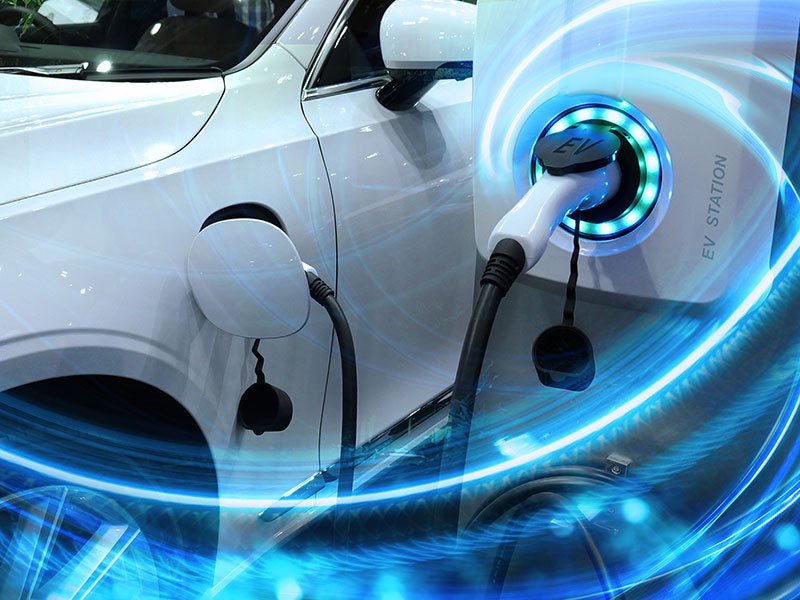The New South Wales government will commit nearly half a billion dollars in Tuesday’s budget to the uptake of electric vehicles, including limited $3,000 rebates and the removal of stamp duty on some new cars.
The reforms will bring down the cost of a new electric vehicle by as much as $5,500 and, with the planned roll out of charging stations, make the state the most supportive of low emission cars in the country.
A controversial road user charge will also be introduced for electric vehicles (EV) but will be deferred to the earlier of 2027 or when EVs make up at least 30 per cent of new car sales.
The 2.5c per kilometre charge, which is also being introduced in Victoria and South Australia, is a way to recoup some of the revenue lost to incentives and partially replace the fuel excise which EV drivers do not pay.
The moves are part of the New South Wales government’s new $480 million EV strategy, aimed at having half of all new car sales being EVs by 2030 and providing the infrastructure to support them.
It follows the state government’s announcement last week of a $380 million Electricity Infrastructure Roadmap, including bringing online 12 gigawatts of renewable energy and 2 gigawatts of storage by 2030, as New South Wales targets net zero emissions by 2050.
The state’s transport sector currently accounts for around 20 per cent of emissions.
The EV strategy has been welcomed by the EV industry, manufacturers and environmental groups, which say Australian states are finally moving to be part of a global revolution.

“Our comprehensive strategy is about making sure we have the right mix in place to incentivise the take-up of electric vehicles while ensuring everyone who drives on our roads contributes to funding and maintaining them,” NSW Treasurer Dominic Perrottet said.
“Our strategy also commences long-term major tax reform. Today we begin the process of permanently phasing out stamp duty on electric vehicles and a deferred transition to a fair and sustainable per-kilometre road user charge for electric vehicles.”
From September stamp duty will be waived for eligible electric vehicles under $78,000 and $3000 rebates will be available for the first 25,000 purchasers of battery and hydrogen fuel cell electric vehicles under $68,750.
The measures appear as though they will cost the state government around $50 million a year over the next four years.
A further $171 million will go to co-funding EV charging infrastructure with private operators. According to the government, when complete there will be access to charging:
- at every 5km along Sydney’s major commuter corridors
- on average every 100km along major highways in NSW
- within 5km of residential areas with limited off-street parking, and
- in or near commuter car parks and other Transport for NSW owned land.
EV drivers will be given access to transit T2 and T3 lanes for a limited time, while $20 million in grants will go to businesses in regional tourist areas to install chargers.
To recoup some of the incentives and to offset the lost fuel excise revenue, a controversial road user charge will also be introduced from 1 July 2027 or when EVs make up 30 per cent of all new vehicle sales, whichever comes first.
Drivers of the EVs that are eligible for a duty exemption will be subject to the charge of 2.5 cents per kilometre or 2c/km for plug in hybrid EVs. Even with the charge, EVs drivers will save around $300 annually by not paying the fuel excise, according to the government.
A similar policy attracted criticism in Victoria, which legislated its road user chare for EVs in May, and will apply it in July rather than waiting several years or for an increased share of new sales like New South Wales.
South Australia also has plans to introduce a distance-based road user charge for EVs but is still consulting on the legislation.
Progressive think-tank the Australia Institute said NSW had shown what a “genuine” electric vehicle strategy should look like.
“New South Wales and Victoria both had intentions for an EV tax, but only New South Wales listened to industry and the experts and have now deferred their tax until later this decade,” The Australia Institute climate and energy director Richie Merzian said.
“The race is now on between jurisdictions like NSW and the ACT to become the hub of EVs in Australia.”
Manufacturer Hyundai also welcomed the announcement, saying the NSW government is “setting the pace” for the rest of Australia.
“Significant investment in the charging network, in both urban and regional areas, is a welcome initiative,” Hyundai Australia COO John Kett said.
“Highly developed infrastructure provides confidence to customers and removes uncertainty around being able to charge EVs away from home.”
Electric Vehicle Council chief executive Behyad Jafari tweeted: “New South Wales electric vehicle policy is of a global standard and what other states will be judged by.”
Do you know more? Contact James Riley via Email.

